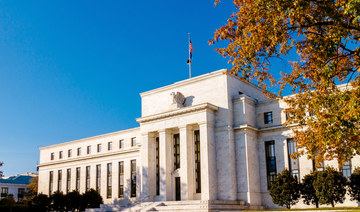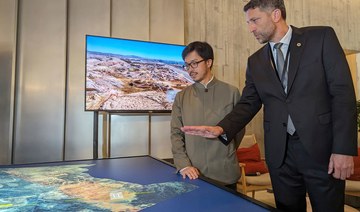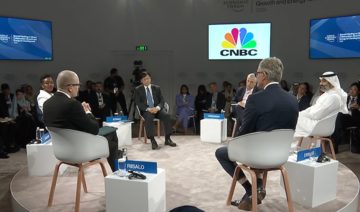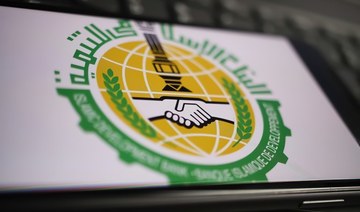RIYADH: The Saudi central bank, known as SAMA, increased key rates by 25 basis points on Wednesday, it said in a statement, following the Federal Reserve’s move to raise US interest rates by a quarter of a percentage point.
The repo rate was increased to 6 percent and the reverse repo rate was raised to 5.5 percent, the central bank statement said.
Most Gulf central banks also increased their key interest rates on Wednesday after the Federal Reserve’s decision, citing still-elevated inflation as a rationale for the latest hike.
The Fed raised its rate by 25 basis points (bps) on Wednesday and left the door open to another increase.
Oil and gas exporters in the Gulf tend to follow the Fed’s lead on rate moves as most regional currencies are pegged to the US dollar; only the Kuwaiti dinar is pegged to a basket of currencies, which includes the dollar.
However, regional economies have been largely shielded from stubbornly high inflation, and a Reuters poll in April showed that inflation in the region was expected to be between 2.1 percent and 3.3 percent this year and fall lower in 2024.
The UAE central bank also mirrored the Fed move, as did Qatar, Kuwait and Bahrain, although the latter left two rates out of four unchanged.
“The Central Bank of the UAE has decided to raise the Base Rate applicable to the Overnight Deposit Facility by 25 basis points – from 5.15 to 5.40 percent, effective from Thursday,” it said in a statement issued by state news agency WAM.
The CBUAE also has decided to maintain the rate applicable to borrowing short-term liquidity from the CBUAE through all standing credit facilities at 50 basis points above the Base Rate, it added.
The Base Rate, which is anchored to the US Federal Reserve’s Interest on Reserve Balances, signals the general stance of the CBUAE’s monetary policy. It also provides an effective interest rate floor for overnight money market rates in the UAE, the statement also said.
Qatar also increased its main rates by 25 bps, taking the lending interest rate to 6.25 percent, the deposit interest rate to 5.75 percent and the repo rate to 6 percent, while Bahrain raised the one-week deposit rate to 6.25 percent and the overnight deposit rate to 6 percent.
The Central Bank of Kuwait increased its discount rate by 25 bps to 4.25 percent from 4 percent, and said in a statement it wants to remain supportive of economic growth, particularly in non-oil sectors.
(With Reuters)
Saudi, Gulf central banks raise key interest rates by 25bps, mirroring Fed
https://arab.news/c6bgm
Saudi, Gulf central banks raise key interest rates by 25bps, mirroring Fed
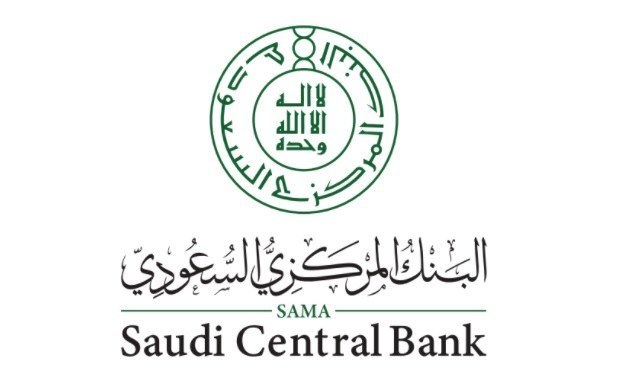
NEOM hosts global financial institutions, showcases progress and investment opportunities
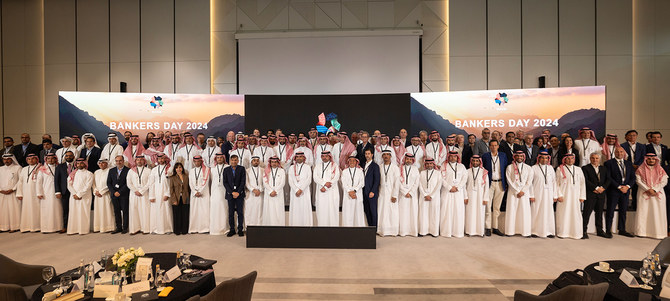
RIYADH: Saudi giga-project NEOM hosted 52 global, regional, and local financial institutions, showcasing ongoing progress across key projects and highlighting investment opportunities.
The meeting also reviewed the progress and latest developments in key NEOM undertakings, including THE LINE, Oxagon, Trojena, and Sindalah, scheduled to open later this year.
The event showcased the giga-project’s commitment to sustainable growth and development, underscoring its focus on environmental, social, and governance principles.
A notable aspect of the visit included a review of THE LINE, where dignitaries observed the rapid progress of phase one construction and gained deeper insights into the initiative’s design.
Nadhmi Al-Nasr, CEO of NEOM, said: “Since inception, we have been establishing strong partnerships to help drive this grand vision forward. NEOM’s vast scale and expertise offer strong and ongoing commercial opportunities for global organizations, including financial institutions.”
He added: “We were pleased to host guests from some of the world’s leading financial institutions in NEOM recently to discuss collaborative avenues. NEOM is open for business and we welcome all interested parties to be part of our continued success.”
The event drew representatives from 24 international banks and financial institutions, including those from Germany, Spain, and France, as well as the UK, the US, and China. Additionally, representatives from Japan and South Korea attended the event.
In addition, 13 regional banks from Qatar, Kuwait, and the UAE attended, alongside 15 financial institutions from Saudi Arabia.
In June 2023, NEOM launched the largest public-private partnership for accommodation, valued at over SR21 billion ($5.67 billion).
It also announced an SR37.5 billion joint venture with global logistics company Denmark’s DSV in October 2023 to provide logistics services for the giga-project.
These announcements, along with other NEOM partnerships, were well-received by attendees at Discover NEOM China, an event held in Beijing, Shanghai, and Hong Kong earlier this month. The event attracted more than 500 senior business and industry leaders.
Homeland economies face growing challenges amid global turmoil, WEF special meeting in Riyadh told
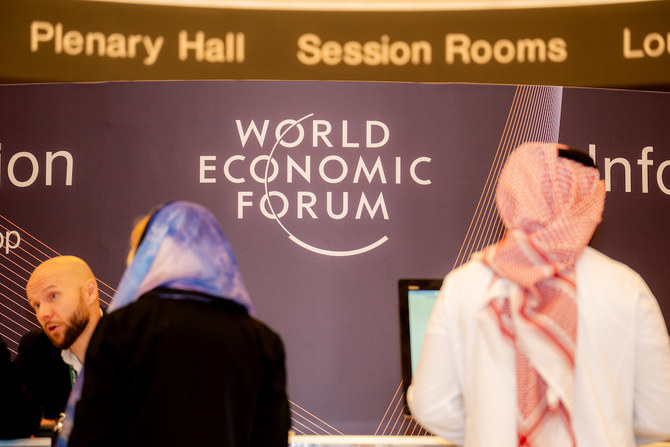
- Partnerships and alliances essential to restore equilibrium, protect security, experts and ministers tell panel discussion
RIYADH: Tensions in the Red are weighing heavily on Egypt, adding to the burdens caused by recent global crises such as the war in Ukraine and the pandemic, the country’s minister of planning and economic development told the World Economic Forum special meeting.
Speaking during a panel discussion on “What Homeland Economics Means for Trade,” Hala Elsaid Younes said that Egypt, like the rest of the world, has faced unprecedented crises in recent years, stemming from climate change problems, the global pandemic, the Russian-Ukraine war, and now the conflict in Gaza.
In order to combat these problems, Egypt has been focusing on controlling inflation, and investing in its labor force and infrastructure, she said.
“What is taking place in the Red Sea at the moment, where 50 percent of shipments are now rerouting, has caused a massive recedes in our profits. Regional and international tensions have also led to a rise in interest rates and soaring food prices.
“If this continues, governments will have little capacity to take care of their poor. We are working very hard on investing in our infrastructure by building more ports, and high railways to link the Mediterranean and Red Sea with inland destinations to expand our exports. We are lucky that over 70 percent of our population are less than 40 years old, so we are also investing in vocational training.”
Aloke Lohia, CEO of petrochemical firm Indorama Ventures, said that the company had to make “significant pivots” in recent years.
“We had a brilliant 20-year run where geopolitics were stable, interest rates were low, and the petrochemical business was growing. However, this all changed after COVID and current wars. Consumer demands and production are not matching anymore, and we are reducing 10 percent of our capacity.
“Homeland economies are great for countries which can leverage it, but not all countries are capable. Some countries, like my own Thailand, have to rely on tourism. So we are now looking at manufacturing our products in countries like India, where a large population resides alongside a stable government,” Lohia said.
US Congressman Brad Schneider said many countries are “looking for leadership.”
He added: “Complexities and uncertainties produce challenges for business; we need to engage in partnerships and alliances. I believe the world is safer when the US is engaged with the rest of the world. Creating equilibrium will be easier established when there are partnerships.”
Ahn Duk-geun, South Korean minister of trade, industry and energy, said that the world is “entering a dangerous phase of industrial competition, and we have to find a way to contain this race that so it won’t cause too much trouble for global trade.”
Clifford Kupchan, CEO of the consulting firm Eurasia Group, highlighted the risks posed by artificial intelligence.
“If AI gets into the wrong hands, the results will be worrisome. It will be very easy to create deepfakes and to create destructive weaponry. This will create an imbalance in world powers,” he said.
“When we talk about homeland economics, national security intervening with trade, I don’t think the prognosis is very good. This applies whether it is (Joe) Biden or (Donald) Trump who will head the presidency. We can be heading toward strategical degradation between the US and China.”
Saudi Arabia committed to green technologies, energy minister says
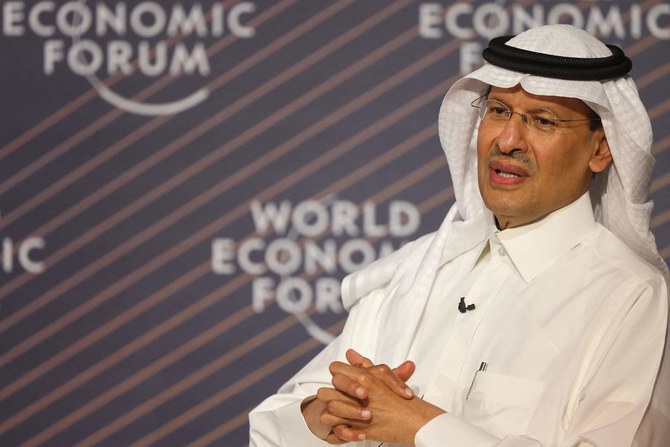
DUBAI: Saudi Arabia is focused on the production of green molecules, said Prince Abdelaziz bin Salman Al Saud, the Kingdom’s minister of energy.
“Our plans are clear to everyone, we are focusing on the molecule,” the prince said at a World Economic Forum meeting in Riyadh. “Being environmentally conscious is our human duty, whatever we do today should not endanger any aspirations of future generations.”
In a session focused on green molecules such as biofuels, hydrogen, and their derivatives, experts discussed various countries’ plans on how to move forward with the production of green molecules.
For his part, Prince Abdelaziz said he believed the concept should be color agnostic, because the molecule business has to do with how we produce clean energy, and that has no color.
“There is a carbon footprint that we need to manage and mitigate. I think stigmatizing things might narrow our choices rather than expand (them). We believe, as Saudis, that we require all the sources of energy, be it nuclear, hydrocarbon-based, or synthetic fuels. We are open to choices.”
The prince also said the kingdom is “libertarian” in its business approach, willing to share the expertise with other countries and that it is already in business with some European states.
“While the technology remains challenging, we continue to work on it to make it accessible and affordable to all,” he said.
The United Arab Emirate’s Minister of Energy and Infrastructure Suhail Al Mazrouei said that, as in Saudi Arabia, leaders in the UAE are aware of the need to invest in new energy.
“The region has become important in tackling problems and coming up with solutions,” Al Mazrouei said. “Clean energy is something we decided to venture into 17 years ago as we were thinking about what is going to happen when we export the last barrel of oil.”
Echoing the prince’s remarks, Al Mazrouei said consumers should not be limited to those considered ready simply because they can afford the price.
“We are working on the technology to make it accessible to all,” he said.
Amani Abou Zeid, commissioner for infrastructure and energy of the African Union, said that Africa has different levels of development and needs and expressed the need for alternative power options.
“Overall we are still electrified in only 49 percent of the continent, so more than half of the population doesn’t have electricity. Africa can’t afford to discard any solution at this point.”
Patrick Pouyanne, chairman and CEO of TotalEnergies SE, alongside Shrikant Vaidya, chairman of India’s Oil Corporation, and Erasmo Carlos Battistella, CEO of Be8, reiterated the importance of accessibility and affordability when producing green molecules.
Despite the positives from those countries engaged in the production of green molecules, such as job creation, there is still a long way to go.
Prince Abdelaziz said: “I think we should be conscious of the fact that the challenge is big, we are still talking about artificial intelligence, the component of the electrification, and what is required for it; the world will require clean molecules (and) it is our hope that we all work together to ensure this happens.”
IsDB annual meeting sees signing of several deals
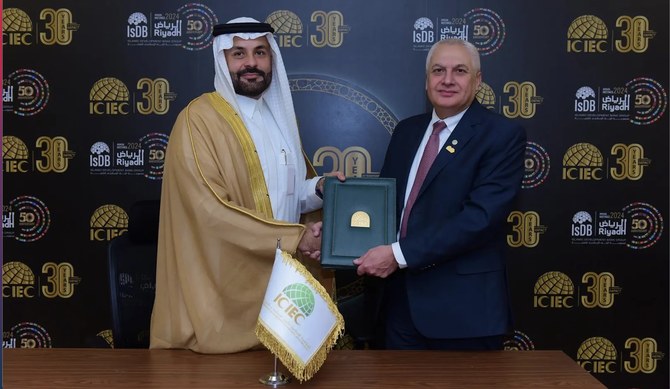
RIYADH: The 2024 annual meeting of the Islamic Development Bank Group saw the signing of several agreements, boosting the telecommunications sector in its member countries.
The Islamic Corporation for the Insurance of Investment and Export Credit, known as ICIEC, which specializes in providing Shariah-compliant insurance services and is a member of the IsDB, announced the inking of a memorandum of understanding with Huawei Technologies Ltd., the Saudi Press Agency reported.
The memorandum was signed by ICIEC CEO Osama Al-Qaisi and the chief operations officer of Huawei Technologies, Silas Zhang.
Under the agreement, ICIEC continues its collaboration with Huawei to enhance the telecommunications infrastructure and leverage advanced communication technology in IsDB member countries.
According to SPA, ICIEC will provide insurance solutions to support the provision of advanced communication network equipment and offer training to key telecommunications operators in member countries.
Al-Qaisi emphasized that the MoU with Huawei represents a significant roadmap toward supporting the enhancement of vital communication framework in member countries through the integration of advanced technology, extensive expertise, and distinguished insurance solutions offered by ICIEC.
He stated: “We are laying the foundation for strong growth and a qualitative leap in the telecommunications sector in member countries, where this collaboration rises to the level of partnership, enabling member countries to harness their full potential to establish a better and more innovative communications sector.”
The ICIEC also signed a MoU with the Federation of Contractors in Islamic Countries, known as FOCIC.
It was signed by Al-Qaisi, and FOCIC President Zakaria Abdul Rahman Al-Abdul Qadir on the sidelines of the IsDB event.
Al-Qaisi explained that the memorandum stems from the institution’s commitment to enhancing understanding and implementation of Islamic insurance in all member countries, aiming to establish a comprehensive framework for cooperation in the areas of knowledge exchange and technical capabilities in the insurance and contracting sectors.
Digital advancements propelling Saudi Arabia toward Vision 2030 goals: top official
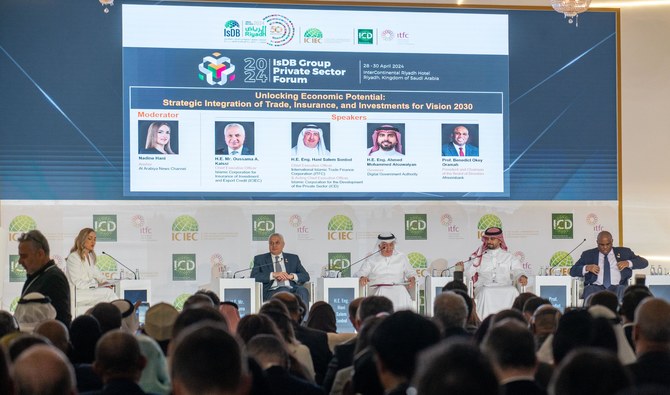
RIYADH: Digital advancements in Saudi Arabia have significantly enhanced efficiency across key sectors, reducing the need for physical visits to government departments and leading to considerable savings, said a top official.
Addressing the annual meetings of the Islamic Development Bank Group, Ahmed Al-Suwaiyan, governor of the Digital Government Authority, highlighted major improvements made through digitalization as part of Saudi Arabia’s Vision 2030 initiatives aimed at enhancing basic services.
He underscored the tangible benefits of increased productivity and decreased expenses for governments, citizens, and businesses.
“In Saudi Arabia, as part of the various programs and objectives of Vision 2030 for basic services, whether it is the issuance or renewal of national IDs, driving licenses, or even passports, before digitalization, it took more than four hours, including the waiting time at government departments,” said Al-Suwaiyan.
Today, he added, it actually takes less than two minutes without the need to visit the government department, requiring only three clicks.
“This has actually made us save more than 160 million trips and more than SR23 million annually,” said Al-Suwaiyan.
He emphasized that “this is the value that we are talking about,” highlighting how increasing productivity and reducing costs benefit not only governments but also citizens and enterprises through digitization.
The governor emphasized how digital transformation has influenced each pillar of the Vision 2030 goals, enabling swift advancements within the Kingdom.
“I would like to speak about Vision 2030, where digital transformation is a key enabler that we can see cross-cutting all the different sectors and all objectives in the development of Vision 2030. If we talk about a “vibrant society,” we can see a clear link with the participation and engagement for every citizen. And the same goes for a thriving economy,” he said.
The official further expressed that merely adopting digitization to do so is not the goal. Instead, the authorities’ efforts are simply a “means” to create a more efficient society.
In the Kingdom’s justice sector, a similar transformation has occurred with the establishment of fully operational virtual courts, where 95 percent of all hearings are conducted online.
However, the primary focus is not solely on the implementation of virtual courts, but rather on achieving specific outcomes.
One notable outcome has been the significant reduction in the time taken for case processing, with the average duration decreasing from 217 days to just 30 days, from the opening of the case to the issuance of the resolution.
This reduction in processing time exemplifies the tangible value derived from digital transformation efforts.



